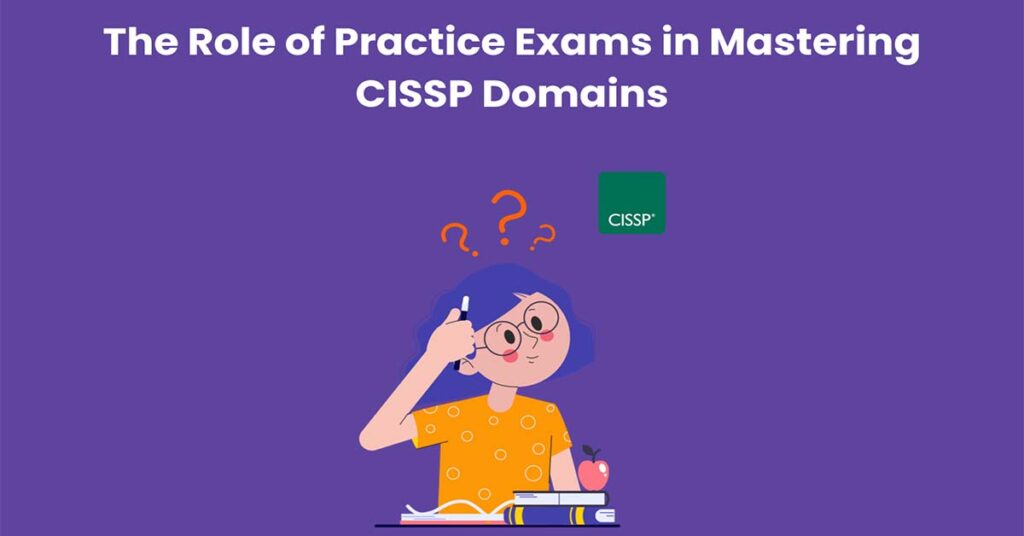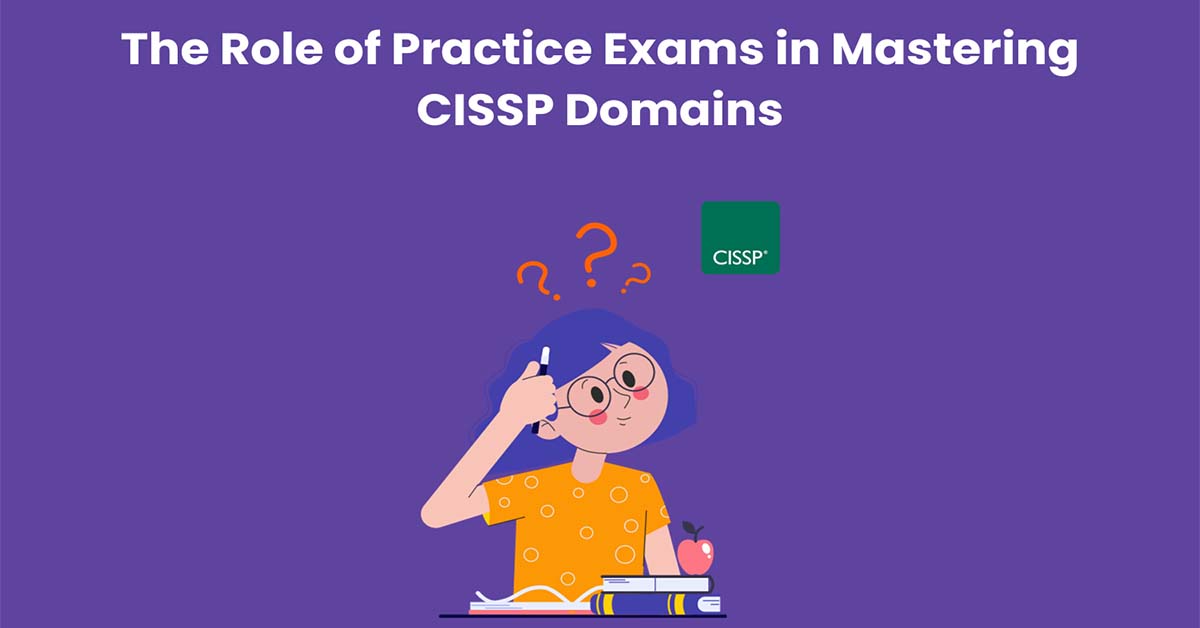
In cybersecurity, staying ahead of the curve is not just a goal but a necessity. As professionals strive to enhance their skills and climb the career ladder, certifications like Certified Information Systems Security Professional (CISSP) become indispensable. Undertaking a CISSP Course is a commendable step, but what truly cements one’s understanding of the domains is the strategic incorporation of CISSP Practice Exam.
The CISSP Course Journey
Learning about the eight CISSP domains, which range from Security and Risk Management to Software Development Security, is an integral part of the path to CISSP certification. A CISSP course delivers the core knowledge necessary to traverse these areas successfully. The capacity to apply knowledge in the real world and synthesise information from other fields is also necessary for actual mastery.
Why CISSP Practice Exams Matter
Here we delve into the importance of CISSP Practice Exams:
Application of Knowledge
Practising CISSP examinations helps you transition from classroom learning to the workplace. They provide CISSP hopefuls a chance to put into practice the knowledge they gained in class. Practical training like this helps applicants refine their problem-solving abilities and better grasp how many disciplines interact.
Identification of Weaknesses
The diagnostic value of CISSP practice examinations lies in their ability to reveal areas of both academic and professional strength and weakness. This knowledge is vital for efficient and effective studying. Candidates may better prepare for the CISSP exam by focusing their studies on the areas where they have the most room for growth.
Time Management Skills
It is well-known that the CISSP test is challenging and short on time. Timed CISSP practice tests are an excellent way to hone your time management abilities. Examinees figure out how to balance their time to give each question their full attention without exceeding the allotted time.
Familiarity with Exam Format
It helps a lot if you know how the CISSP test is structured. Candidates may get a feel for the test’s format and question types with the help of practice examinations that closely resemble the real thing. The less time you have to worry about the structure of the test, the more you can concentrate on the material.
Confidence Boost
Confidence increases as a result of attaining success. Completing CISSP practice examinations successfully gives students a confidence boost. This gives them confidence in their abilities and knowledge as they prepare for the real CISSP test. Maintaining confidence in the face of adversity is a valuable skill.
Integrating Practice Exams into Your CISSP Course
Including CISSP practice tests as part of your overall study plan is the best way to ensure you get the most out of them. Think about these suggestions:
Regular Practice Sessions
Plan in time to practise for the CISSP exam regularly. When it comes to strengthening knowledge and enhancing performance, consistency is crucial. Dedicate time to CISSP practice tests to guarantee adequate study of all areas.
Analyse Results
It’s important to critically examine your performance on a practice test once you’ve finished it. Figure out where you excelled and where you may need some work. Use this analysis to inform your study strategy to improve in areas where you are weak and build upon strengths.
Simulate Exam Conditions
Try to simulate the actual test environment while studying. This involves setting and sticking to time limitations, clearing the workspace of interruptions, and maintaining relative silence. To do well on the real CISSP test, you should practise taking it under exam circumstances.
Utilize Feedback
Detailed answer explanations are available for many questions on CISSP practice examinations. Take advantage of this critique to learn from both your successes and failures. This method not only helps you remember information better, but it also improves your analytical abilities.
Conclusion
A thorough CISSP course is the cornerstone of preparation for the CISSP exam. Mastery, however, requires more than just head knowledge; it also necessitates application in the real world and a systematic approach to testing. When carefully included in a CISSP course, practice examinations are a powerful tool for consolidating knowledge, pinpointing areas for improvement, and fostering the self-assurance students need to succeed across all CISSP domains. Use practise tests as your map to help you navigate the treacherous landscape of cybersecurity and get your CISSP certification.










